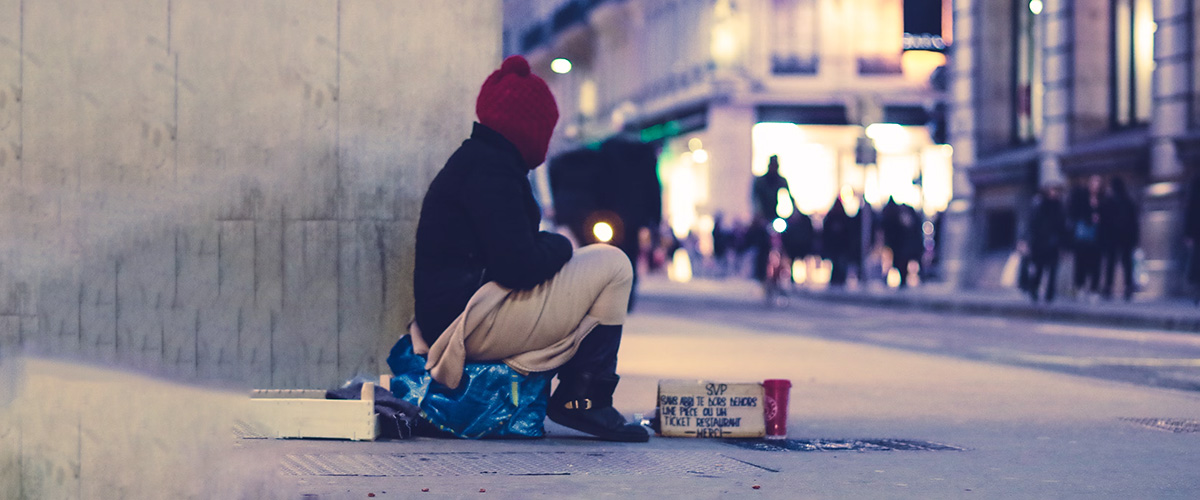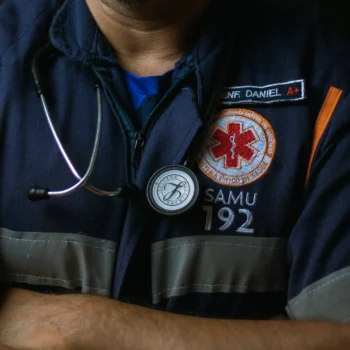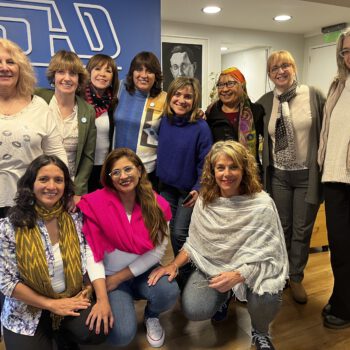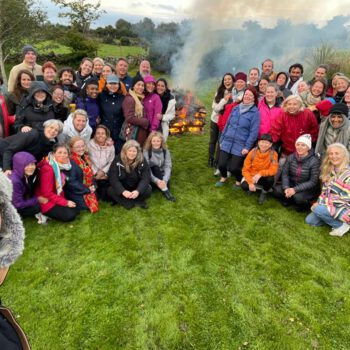A certified Compassionate Inquiry® Practitioner, Private Mentor, and Raja Yoga Instructor, Tamara co-founded the Windsor Youth Centre, a drop-in centre for homeless youth. Previously, she taught English, ESL and Drama in North America, Asia and Europe. Passionate about spoken word poetry, Tamara’s new book, Coffee and Crystal: Addiction and Healing in Verse, published in 2024.
This post is a short edited excerpt of Tamara’s experiences working with homeless and addicted populations. Listen to her full interview on The Gifts of Trauma Podcast.

Vulnerability alleviates shame. This is something I’ve learned through experience. I can be vulnerable and alleviate my own shame, or I can be vulnerable and help alleviate someone else’s shame.
I’ve worked with homeless youth for many years. Many of them were addicted to street drugs. Not just alcohol, but crack, crystal meth or fentanyl. Shame is connected to being homeless and addicted to those kinds of drugs, as opposed to being wealthy and addicted to cocaine. There’s a different stigma associated with street drugs.
Over the last few years, some of the people nearest and dearest to my heart have been in and out of homelessness, using fentanyl or crystal meth. So when I meet a new client at the shelter, if I make myself vulnerable and tell them that people I love are using fentanyl, and are probably on the street right now, I can almost see layers of shame fall from their shoulders. Sharing this can also create confusion, because in seeing me, they may assume certain things about me and my life. I’ve found that making myself vulnerable removes some of the shame that might be present. So when we talk about shame, I’d like to include vulnerability in the conversation, because it’s an antidote to shame.
Brené Brown says, “Shame dies when stories are told in safe places.” She’s right.
Homeless people tend to blame themselves for their situation. They’ll either make excuses, or apologize. This is because the accepted social narrative supports the assertion that if someone is homeless or addicted, it’s their fault.
In my experience, getting material needs met (food, shelter, clothing) requires prospective recipients to participate in the self-blaming social narrative. Taking on that narrative can often get someone a bus ticket, or something else that they need. That’s a comment about the social systems we put in place; health services, educational services, etc. If people in need do not adhere to that narrative, it’s very difficult for them to access the services they need.
I worked in the not-for-profit world long enough to understand how our social systems operate. The key question is, how is the social service funded? Especially when it comes to mental health, the very things that are required of someone to access mental health services are the things that their state, or what they’re experiencing, does not allow them to do.
Paradoxically, the things people are asked to do are the very things that they’re seeking help to be able to do. It’s like showing up at the hospital with a broken leg and being told you have to go to X-ray on the 5th floor, but there’s no elevator. The help is available, but it’s not accessible. So the question becomes, if it’s not accessible, is it actually available?
In my experience as an activist, the most disruptive thing we can do to change ineffective systems that don’t serve people’s needs is to speak about this honestly, on every platform available. And if someone has to conform to a particular narrative to get their needs met, we’re teaching them, we’re requiring them to be dishonest. This will not promote healing. In addition, putting people in this situation might take them back to their early childhood experiences, to a mask they were required to wear.
The masks I was required to wear as a child ignited a rage inside me that I could not express. This unresolved childhood rage propelled me to start the Windsor Youth Centre, and it was good that it did. It was a great experience that created a wonderful agency that’s still operating and serving people. But I had to leave because that rage was unresolved. By founding the Centre I had simply put myself in the same situation, but on a bigger scale.
Today, I work with vulnerable people experiencing homelessness and addiction within the same unjust systems I just described, but I’m working differently. Honesty is at the forefront of everything I do, because I’ve come to understand that honesty creates safety. At the homeless shelter, I’m not sitting with someone in a controlled office environment. With nothing else to rely on, I have to establish safety within the relationship. And nothing undermines safety more completely than dishonesty, especially for people who feel constantly unsafe. Their radars are always on, their BS detectors are always on, so they know when they’re not safe.
I value working with these people because there’s so much honesty. Somebody I met through the Windsor Youth Centre was so absolutely honest with me, he didn’t let me get away with my story that I was telling myself, about myself. To this day, I’m grateful to him because he forced me to look closely at my story . When I did I couldn’t perpetuate it anymore.
That’s why I started paying attention to Gabor Maté. When I read In the Realm of Hungry Ghosts, I thought, wow! This man is telling the truth about people and addiction and homelessness. I was, and am, profoundly impressed that he uses his platform, his voice, to tell the truth. We need more people like Gabor in our world.
That same honest person I met through the Windsor Youth Centre also told me, “You’ve got to tell people’s stories because people in poverty have no voice. But you do have a voice, Tamara. People listen to you. You’ve got to tell these stories!”
Having this beautiful person’s voice in my head saying, “You’ve got to tell our stories,” helped me write a book of poetry that was released a few months ago. Coffee and Crystal tells their stories, and mine.– – –
The Gifts of Trauma is a weekly podcast that features personal stories of trauma, healing, transformation, and the gifts revealed on the path to authenticity. Listen to the interview, and if you like it, please subscribe, rate, review and share it.




Comments are closed.